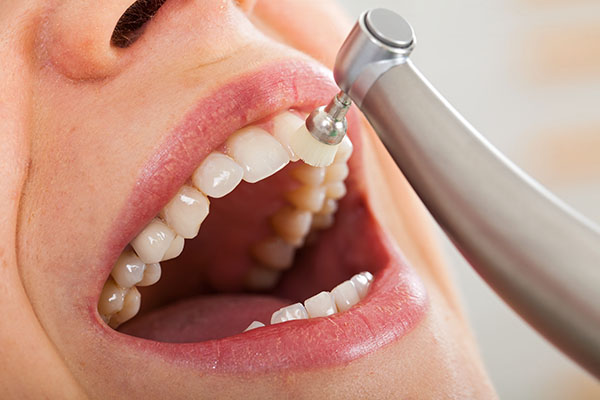 For patients who have damaged or decaying teeth, dental restorations may be a necessity. Dentists use a variety of restorative procedures to protect and repair the structural integrity of an individual's teeth. Some of the most common restoration procedures may include dentures, crowns, and fillings.
For patients who have damaged or decaying teeth, dental restorations may be a necessity. Dentists use a variety of restorative procedures to protect and repair the structural integrity of an individual's teeth. Some of the most common restoration procedures may include dentures, crowns, and fillings.
When do patients require dental restorations?
No individual should suffer from severe tooth pain or discomfort. Decaying teeth, gum disease, and broken or damaged teeth can cause discomfort and interfere with a patient's ability to live a normal life. Damage to the teeth can also lead to gum disease and the development of serious oral infections.
Severe decay
Left untreated, cavities can destroy the tooth and damage the central nerves. Infections and abscesses may form at the root tip. Once a patient has an abscess, the only way to save the tooth is through a root canal or tooth extraction. During a root canal procedure, the dentist cleans the canals and removes the infected pulp. Once removed, crowns or fillings can repair the structure of the tooth. Dental restorations may also include tooth extraction and replacement with either a permanent or removable bridge or implant.
Cracked and broken teeth
Individuals can suffer cracks, chips, and broken teeth due to a variety of factors. While cracks sometimes occur due to chewing hard foods, falls and other injuries often lead to tooth damage as well. Even minor chips and cracks can become worse over time. A crack exposes the tooth to infection and decay. Any opening for bacteria to enter the tooth's bloodstream and attack nerves can lead to serious infection.
Dentists may use fillings or crowns to repair a tooth. The type of dental restoration used depends on the severity of the crack in the teeth. Crowns fully cover the teeth to prevent bacteria from entering the damaged areas. In contrast, fillings simply fill the area with composite, metal, or another material to prevent further damage and seal the tooth from bacteria.
Gum disease
For patients with gum disease, there are various restorations that may be available. One technique includes removing the bacteria in periodontal pockets and smoothing the areas of bone to allow the gum tissue to reattach. In severe instances, patients may require bone grafts or tissue regeneration.
Gum disease can lead to tooth decay and tooth loss. For patients who suffer from tooth loss, bridges and dentures become an important option. Dentures are generally acrylic resin and may be combined with metal attachments. Partial dentures use metal clasps that hook to remaining teeth, whereas complete dentures replace all teeth.
Patients may qualify for implants regardless of whether they have periodontal disease. When an individual has no active infection, dentists can perform an implant procedure.
Conclusion
For patients who suffer from decaying, fractured, or weakened teeth, dental restorations may be necessary. Common restorations for patients include fillings, implants, bridges, dentures, and crowns. Patients may have a choice in the type of restoration, but the restoration becomes necessary when an extraction is the only other option to restore a patient's oral health.
Request an appointment or call Founders Dental at 720-893-7362 for an appointment in our Castle Rock office.
Recent Posts
If you have ever gotten a filling or watched someone put in their dentures, you are familiar with the world of dental restorations. Although restorative dentistry focuses primarily on tooth and gum preservation, there is considerable overlap between dental and jaw health. As a result, dental restorations play a significant role in jaw restoration.To better…
After getting dental restorations such as fillings, implants, crowns, or root canals, it is important to follow any aftercare instructions given by the dentist. Doing so can help avoid damaging the restoration and causing further harm to the mouth. It can also allow the mouth to heal quickly and properly. Here are some tips commonly…
Dental restorations have been used for thousands of years. In fact, a 2012 article published by The New York Times details the discovery of a 6,500-year-old human jawbone. Considered the earliest evidence of dental fillings, it had beeswax in one tooth, which researchers believe was to ease the pain of a crack. These days, restorations…


